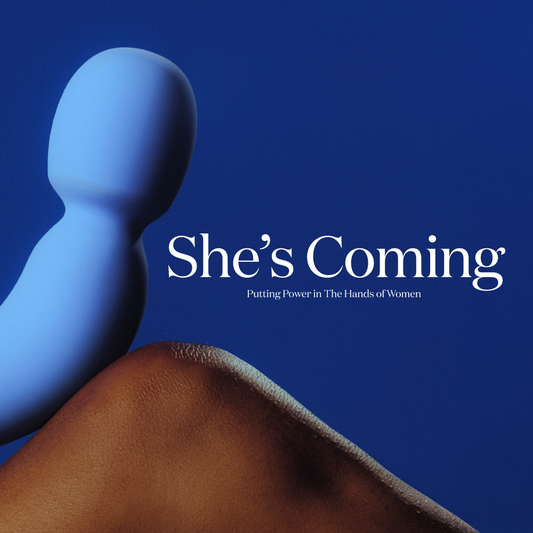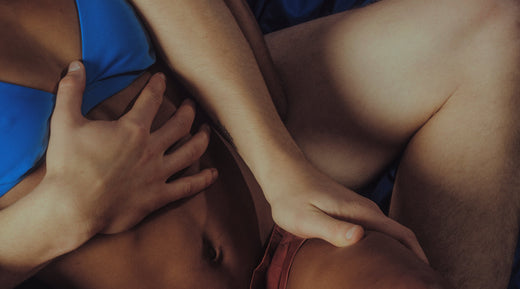Carly, 26
I was 15 when I first recognized sex as a currency. Enter: my first boyfriend. I loved giving him handjobs, understanding that once he’d climaxed, it was over and we could go back to whatever we were watching on my laptop. But when he’d move his hand towards my underwear, I’d freeze. I was self-conscious. Inexperienced. I was worried he wouldn’t like what I was packing. After a series of failed attempts to finger me, he broke up with me. I took it as an insight into the minds of pubescent boys: You need to give them something or else they’ll leave. So, I did. Two weeks later I was sneaking out at 2 a.m. with a different boy to give and receive head on the benches of the nearby primary school. After a few weeks, he left, too.Now, in my later 20s, I like to define sex as any experience where an intimate connection is formed.While, at 17, I wasn’t the first in my friendship group to lose their virginity, I definitely fast-tracked my experiences. Sex to me wasn’t an experience or an emotion. It was a decision and a transaction. I decided I wanted to have sex but in exchange, I didn’t receive an intimate connection. I signed the dotted line for what was soon to be my own personal brand. I didn’t “lose” anything. In fact, after that night, I felt I gained something: access, autonomy, and a feeling of authority. Honestly, the traditional notion of virginity is something that bothers me: a penetrative experience. Now, in my later 20s, I like to define sex as any experience where an intimate connection is formed. With or without pants or penis. Not transactional. But emotional. Vulnerable. Enjoyable. With this new definition, I look back and reflect on the moment I lost my virginity. Was it that night in the car? Was it at 15, giving my first handjob? Or was it much later in life, during a mutual and respectful experience ending in simultaneous orgasm? I think with each sexual experience, with the different versions of “losing my virginity,” I gained something. And that’s something I’ll never let go of.
Cathy, 30
I grew up in China, hitting puberty with impeccable timing: right in the middle of China’s big internet boom. I remember being 11 and hearing horror stories about girls losing their virginity before marriage who could never get married as a result of not being “pure” anymore. Celibacy was compulsory for women and an interesting operation called “hymen repair” was available to those who wanted a “second chance” at life. But that mentality soon changed. By the time I graduated university, virginity had become a less taboo topic. People who waited until marriage were considered to be traditional, conservative and even a bit boring. “What if they’re not compatible in bed? Not even a trial run first?” All these drastic changes have somehow disillusioned me about virginity. The ridiculous inconsistency shows sometimes society just couldn’t make up its mind and right and wrong is quite relative.Anna, 24
I suppose I think about sex more than anyone really should. I am constantly in awe at the ways it can stop and define our lives. But at 16, it felt like the only thing defining me because I was on the outskirts of it. I was the friend everyone would come to for advice or feel comfortable disclosing intimate information to. One day a girl I barely spoke to sent me this message: My nipples are sore. I didn’t know who else to tell...I suppose I did 'lose' it. I lost something I was holding onto, a part of me that was too scared to dip my toes into the water in case it felt too cold.I seemed to be the person most comfortable and unfazed discussing sex despite the fact that I wasn’t having it. I suppose insecurity can do that: It leaves you open to the world but all the more vulnerable to yourself. Some nights I would stand in front of my mirror, pull my stomach fat, and think: Who would ever want to touch this? My friends were beautiful and tall and slim and alive and I felt stuck and anxious and scared, like I was a phony. I wanted to experience sex so much but not before I was comfortable with myself. The act wasn’t so centered around the right person, but rather the right me. I’m surprised that I’m still surprised by how much this is still true. When the time finally came, I knew it was right not because it happened in an alleyway then multiple times across my bedroom, but because I was (fortunately) in complete control over how I chose to experience it. I suppose I did “lose” it. I lost something I was holding onto, a part of me that was too scared to dip my toes into the water in case it felt too cold. I guess I forgot that I’m too stubborn to dip; I have to dive into things when I am so overcome by the desire. And that’s exactly what my sex life has been ever since: a series of deep dives and uncautious chances. Sometimes it’s cold, sometimes it’s all encompassing, and sometimes it’s just right. Virginity shouldn’t be pressured to be the great spectacle we think it needs to be. Like the tide, it will arrive as quickly as it will leave but who you are will always remain, even if it’s changed (ever so slightly), by the touch of something you expected but couldn’t completely understand until it hits you.




















































